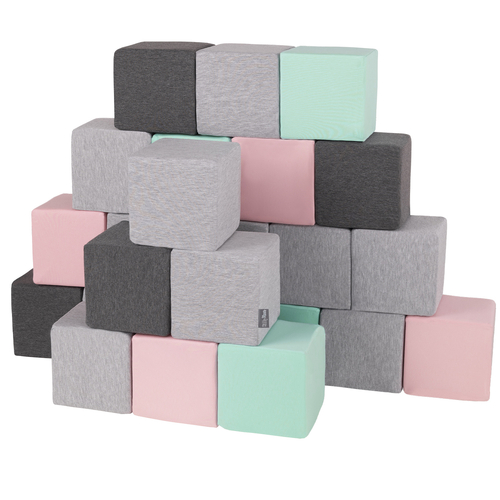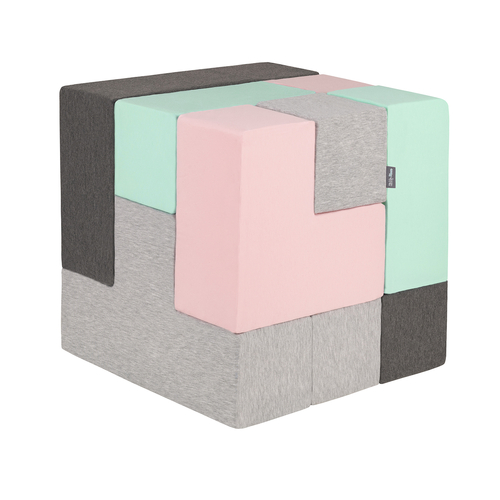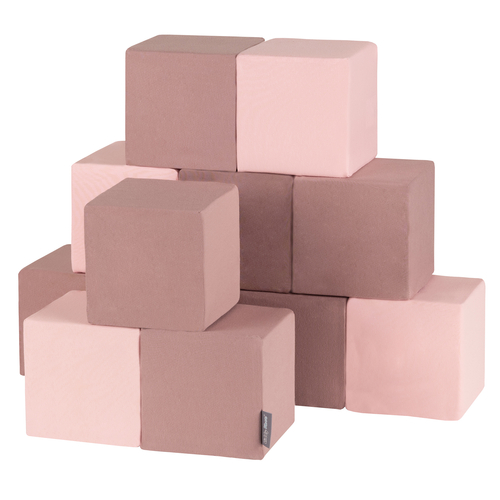The benefits of sensory play for toddlers

From the moment they enter the world, babies use their senses to explore and understand their environment. The need to develop these senses only increases as they grow into toddlers, which is where the idea of sensory play comes in.
In this blog, we explain the ins and outs of sensory play and how it can support your child as they continue their development.
What is sensory play?
As the name suggests, sensory play consists of activities, movements and games that stimulate one or more of your little monkey’s five senses: taste, touch, smell, hearing and sight. Sensory play should be age-appropriate, as babies, toddlers, and young children are all capable of different motions.
Sensory play begins from birth, with newly born infants enjoying being tickled, listening to soothing lullabies or looking up at colourful mobiles.
As they grow, your baby will be able to engage in more sensory play - playing amongst soft and vibrant plastic balls, holding teddy bears, and rolling around in different positions on the playmat will enhance their senses.
During toddlerhood, you can blow bubbles for your little ones to chase, catch and pop, for example, which encourages them to use their touch, sight, and hearing senses all in one.
Older children are capable of engaging in more advanced sensory play, with possible activities including:
- Squeezing and rolling playdough
- Grabbing foam blocks
- Colouring with crayons
- Playing in sandpits
- Blowing bubbles
How can sensory play benefit your child?
Aside from enjoyment, sensory play and sensory toys have many benefits that are valuable to your child’s maturation. . We’ve listed the advantages below:
Cognitive Development Exploring different textures, colours, smells, and sounds helps toddlers develop their cognitive skills by making connections and understanding cause-and-effect relationships.
For example, playing clap hands teaches toddlers that the sound they hear when contact occurs is from their hands meeting.
Fine Motor Skills Sensory play activities such as pouring, scooping, moulding, and sorting promote the development of fine motor skills – the activation of the small muscles in the hand. These skills are vital for growth, helping young ones to tie their laces and hold pens down the line.
Language Development Playing with new colours, textures and shapes helps children to learn new words related to each activity. ‘Blue,’ ‘circle,’ and ‘soft’ are examples of terms your toddler may start to incorporate into their vocabulary through play.
Creativity and Imagination With opportunities for exploration, toddlers can engage in make-believe play, create their own stories, and use their imagination to turn sensory materials such as wet sand into new objects, like small castles or foam blocks into secret hideouts.
Problem-Solving Skills Sensory play often presents puzzles for children to tackle, such as figuring out how to pour water without spilling, stacking foam blocks, or fitting objects into specific spaces. This boosts their problem-solving skills and critical thinking from an early age.
Sensory play is the way to go
Your child will benefit greatly from sensory play - encouraging your child to activate their senses will help to prepare them for nursery and playgroups further down the line. This is because your little one will already be familiar with the shapes, colours and problem-solving taught in school.
At KiddyMoon, we’re trusted suppliers of sensory play toys. From soft play mats to plastic balls, there’s something for young children of all ages - check out our new arrivals. If you’d like to get in touch with our experts, please email us at contact@kiddymoon.co.uk.



